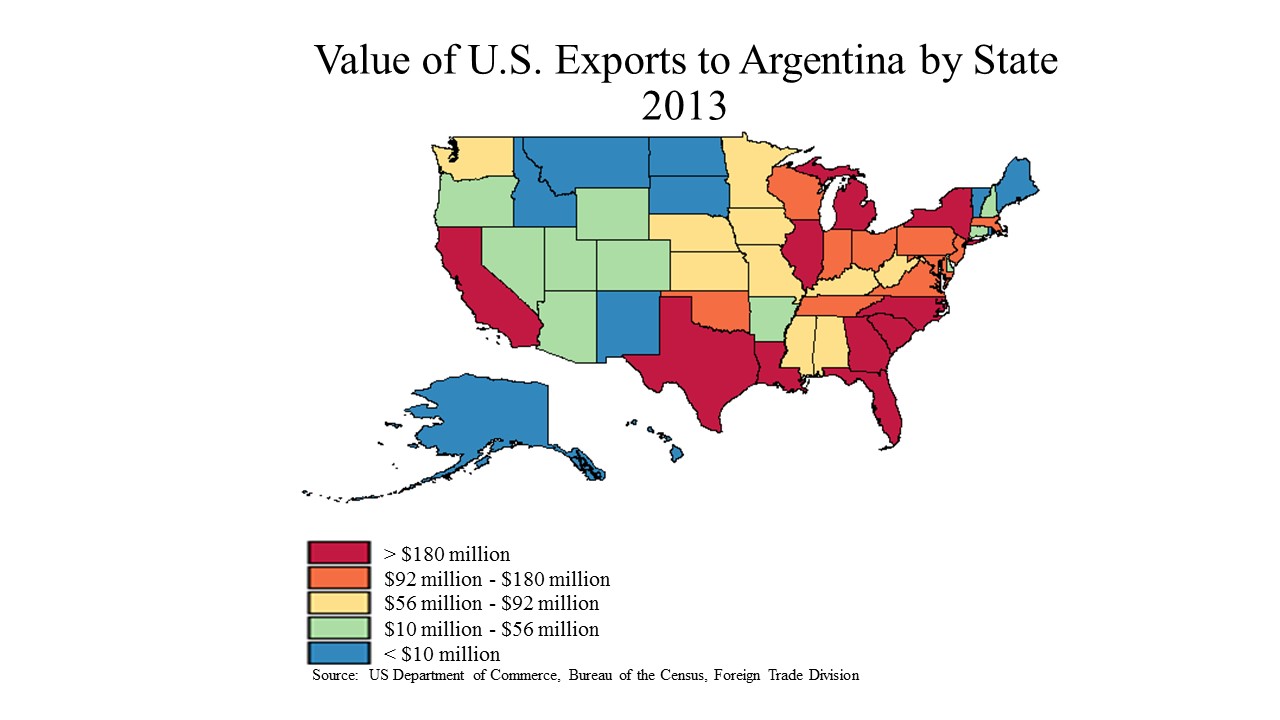United States Prevails in WTO Trade Enforcement Dispute Against Argentina’s Import Licensing Restrictions

FACT SHEET: Trade Enforcement – Leveling the Playing Field for U.S. Workers and Employers
Washington, D.C. – United States Trade Representative Michael Froman announced today that a World Trade Organization (WTO) dispute settlement panel found in favor of the United States in a dispute challenging widespread restrictions maintained by Argentina on the importation of U.S. goods. The Panel agreed with the United States that Argentina’s import licensing requirement and other import restrictions breach international trade rules.
“This is a major victory for American workers, manufacturers and farmers,” said Ambassador Froman. “Argentina’s protectionist measures impact a broad segment of U.S. exports, potentially affecting billions of dollars in U.S. exports each year that support high-quality, middle class American jobs. The Obama Administration will continue to enforce U.S. rights under our trade agreements and ensure that our trading partners play by the rules to help U.S. workers compete in the global economy.”
The import restrictions challenged by the United States in this dispute include an import licensing requirement (the Declaración Jurada Anticipada de Importación or “DJAI”) that applies to all imports of goods into Argentina. The United States also challenged restrictive trade-related requirements imposed by Argentina together with the DJAI and other licensing requirements. These requirements imposed by the Argentine Government mean that many U.S. companies seeking to bring their products into Argentina have had first to agree to export Argentine goods, make investments in Argentina, lower prices of their products, or refrain from repatriating profits to the United States.
Both the DJAI and the restrictive trade-related requirements serve to unfairly restrict the importation of U.S. goods into Argentina. The measures potentially affect billions of dollars in U.S. exports each year; key U.S. exports to Argentina include computers, industrial and agricultural chemicals, agricultural and transportation equipment, machine tools, parts for oil field rigs, and refined fuel oil.
This is the third significant WTO victory USTR has announced in 2014. In the first dispute, the WTO found that China breached WTO rules by imposing unjustified extra duties on American cars and SUVs. In 2013, an estimated $5.1 billion of U.S. auto exports were covered by those duties. In the second dispute, WTO panel and Appellate Body reports have found that China also breached WTO rules by imposing duties and quotas on exports of rare earths, tungsten, and molybdenum. Those export restraints promote China’s own industry and discriminate against U.S. companies using those materials, which are key inputs in a multitude of U.S-made products for critical American manufacturing sectors, including hybrid car batteries, wind turbines, energy-efficient lighting, steel, advanced electronics, automobiles, petroleum and chemicals.
Background:
In 2012, the United States initiated this dispute, in cooperation with the European Union (EU) and Japan, by requesting consultations with Argentina concerning its import licensing requirements as well as restrictive trade-related requirements imposed together with those licensing requirements. After consultations failed to resolve the matter, the WTO established a single panel to consider the U.S. complaint as well as similar complaints filed by the European Union and Japan.
With respect to the DJAI requirement, the Panel found that this requirement constitutes a restriction on the importation of goods and is therefore inconsistent with Article XI:1 of the General Agreement on Tariffs and Trade 1994 (GATT 1994). The Panel found that the DJAI requirement restricts market access for imported products, creates uncertainty as to whether importation will be allowed, does not allow companies to import as much as they desire, and imposes a significant burden on importation.
The Panel also found that the restrictive trade-related requirements are inconsistent with Article XI:1 of the GATT 1994 because they impose conditions on importation that have a limiting effect on imports and are characterized by a lack of transparency and predictability, which further discourages importation. The restrictive trade-related requirements include: (1) the requirement to export a certain value of goods from Argentina related to the value of imports; (2) the requirement to limit the volume of imports and/or reduce their price; (3) the requirement to refrain from repatriating funds from Argentina to another country; (4) the requirement to make or increase investments in Argentina (including in production facilities); or (5) to incorporate local content into domestically produced goods.
Under WTO rules, the report will be adopted within 60 days of the report’s circulation at the request of any party, or any party may appeal the report before it is adopted.
The following U.S. states represented the largest share of exports to Argentina in 2013, each exporting over $180 million in goods that year: Texas, Florida, Louisiana, California, Illinois, South Carolina, Michigan, New York, Georgia, North Carolina. The top categories of exports include: mineral fuel, nuclear reactors and parts, machinery, chemicals, plastics, pharmaceuticals, medical devices, aircraft and parts, and vehicles.
###







